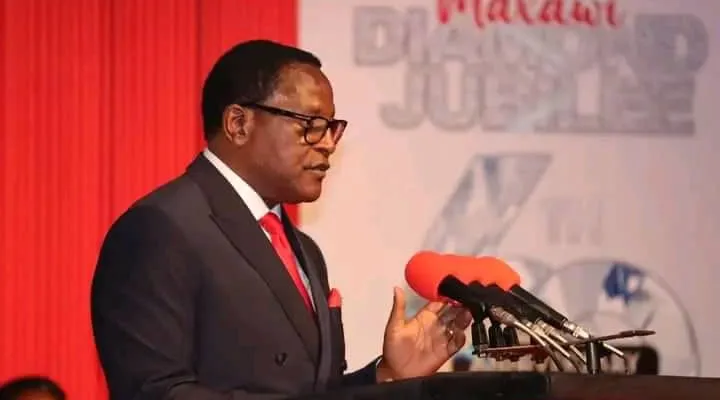
President Lazarus Chakwera’s statement on Independence Day, July 6, 2024, declaring “ndidzafera mbendera ya dziko la Malawi monga Chilima” (I’m ready to die for the Malawian flag just like VP Saulos Chilima), has ignited a spectrum of reactions among Malawians, reflecting diverse opinions and sentiments across the country.
Stevie Kauka expressed strong support for Chakwera’s statement, emphasizing the importance of patriotism and national unity. Kauka’s comment underscores a belief that all Malawians share a responsibility to uphold and defend the nation’s flag, echoing sentiments of collective pride and loyalty.
However, not all reactions were supportive. D Willie responded with scepticism and mockery, questioning the sincerity behind Chakwera’s declaration. Willie’s comment, “Ofera mbenderayo Chakwera?” (Is Chakwera ready to die for the flag of Malawi?), reflects doubts about the practical implications and commitment of political leaders towards fulfilling such declarations in meaningful ways.
Erik criticized the President, suggesting that Chakwera’s statement was ill-considered or poorly delivered. This viewpoint highlights concerns over the effectiveness of political rhetoric in addressing the substantive challenges faced by Malawi, including economic hardships and governance issues.
Thomas Chikwi voiced disillusionment with the current government, likening voting for them again to “killing our country’s future.” Chikwi’s remark points to broader discontentment with the administration’s performance and policies, reflecting a sentiment of disenchantment among segments of the population.
Nathan Samuel Chani’s stark warning that voting for the Tonse Alliance Government in 2025 is akin to “killing yourself” underscores deep-seated concerns over the perceived consequences of political choices. This sentiment reflects anxieties about the direction of the country and the impact of governance decisions on citizens’ livelihoods.
President Chakwera’s declaration, made on a significant national occasion, aimed to invoke a sense of unity and commitment to Malawi’s national identity.
However, the varied reactions highlight the complexity of public opinion and the challenges faced by the government in bridging gaps between political rhetoric and concrete actions that address the nation’s pressing issues.
As Malawi navigates through these differing viewpoints, fostering dialogue and addressing the underlying concerns will be crucial for promoting unity and effective governance.
The diversity of responses underscores the need for inclusive leadership that engages with the aspirations and challenges of all Malawians, striving towards a future where national pride is matched by tangible improvements in the lives of its citizens.














